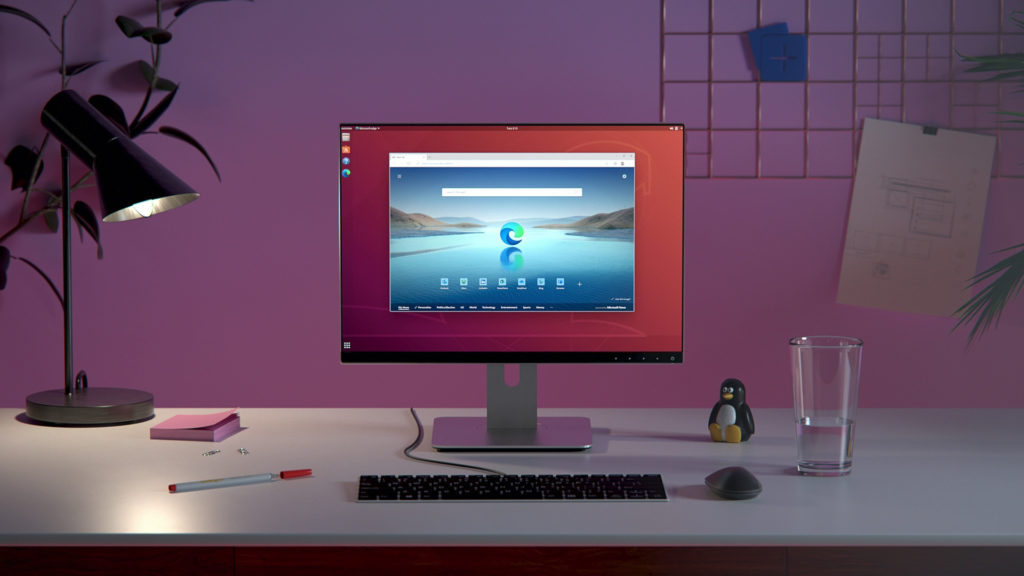Linux users can now get the Microsoft Edge experience
Microsoft Edge is now available on all major platforms following the release of the new preview build for Linux

Sign up for breaking news, reviews, opinion, top tech deals, and more.
You are now subscribed
Your newsletter sign-up was successful
Microsoft has announced the availability of the Microsoft Edge Dev Channel for Linux.
The company brought its new Chromium-based Edge browser to macOS earlier this year, and with this release, the software giant's Edge browser is now available on all major platforms including Windows, macOS, Android, iOS and now Linux. This means that developers will be able to build and test their websites with the same web platform and tools available on macOS and Windows using their preferred environment.
In its current form, Microsoft Edge for Linux supports a number of the most popular Linux distros including Ubuntu, Debian, Fedora and openSUSE. Going forward Microsoft plans to release weekly builds as it does for its other Dev Channel releases.
- We've put together a list of the best Linux distros around
- These are the best anonymous browsers on the market
- Also check our roundup of the best Linux VPN
As the first version of Edge for Linux is a preview build, some end user features and services have not yet been fully enabled including the ability to sign in to Edge using a Microsoft or AAD account as well as other features such as syncing settings and favorites which require users to sign in. However, these features will be made available in a future preview.
Installing Microsoft Edge on Linux
According to Microsoft, there are two ways for users to get started using Edge on Linux though the simplest way is to download and install either a .deb or .rpm package directly from the Microsoft Edge Insider site. Doing so will automatically configure your system to receive future updates when they become available.
Alternatively, users can install Microsoft Edge from the company's Linux Software Repository using their distribution's standard package management tools. This can be done by following the “Command line installation” instructions on the Microsoft Edge Insider site which are available for Debian/Ubuntu or Fedora/openSUSE.
While Linux users can begin testing out Microsoft Edge on their systems, security researchers can begin searching for and submitting vulnerabilities to the company's new Microsoft Edge Bounty Program. Eligible bug bounties can earn researchers anywhere from $1,000 to $30,000 depending on the severity of the vulnerabilities they find in Edge for Linux.
Sign up to the TechRadar Pro newsletter to get all the top news, opinion, features and guidance your business needs to succeed!
Since releasing Chromium-based Edge back in January, Microsoft has continually updated the new version of its browser with additional features and now that Edge is available for Linux, it will likely get the same treatment over the coming months.
- We've also highlighted the best browsers
After working with the TechRadar Pro team for the last several years, Anthony is now the security and networking editor at Tom’s Guide where he covers everything from data breaches and ransomware gangs to the best way to cover your whole home or business with Wi-Fi. When not writing, you can find him tinkering with PCs and game consoles, managing cables and upgrading his smart home.
